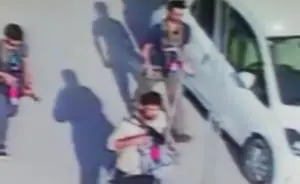The UN-sponsored Libyan dialogue over the past few weeks has faced many obstacles as many concerned that the political agreement might fail due to military escalation in the east and the west of the country.
"The military escalation may affect the course of dialogue and the efforts led by the UN to amend the agreement, because it comes at a time when everyone is waiting for a quick end to the political polarization," Libyan lawmaker Faraj Abdulmalek said.
"I believe that the recent escalation in the eastern city of Derna and the events taking place in the western city of Aziziya could end quickly, as the outstanding issues and differences will be solved," Abdulmalek added.
Unidentified warplane carried an airstrikes on Derna last week, killing and wounding 47 people, mostly civilians.
The eastern-based army denied responsibility for the airstrike, confirming an immediate investigation into the incident.
The city of Aziziya, 30 km south of the capital of Tripoli, on Tuesday witnessed movements of the military forces of UN-backed Government aimed at eliminating crime in the area, according to the military council of Zintan.
Abdulmalek praised the results of the Cairo meetings for the efforts to unify the Libyan army.
"We strongly welcome the results of the recent meetings in Cairo which aimed at bringing together the military leaders from various cities in Libya to quickly unify the national army. This would end tensions and stop any military movements by any group," he said.
According to Libyan army spokesperson, the Cairo meetings activated the role of the armed forces, "as the officers participating in these meetings came from different parts of Libya."
"Amending the political agreement is possible, however, it faces obstacles again and again, which threatens to continue the crisis," Imad Jalloul, a Libyan political analyst said.
"We all note that when politicians get closer to resolving their differences, local and international parties interfere and disrupt the efforts. This is often done through military escalation, in an attempt to show that a military solution is the only solution to end the conflict," Jalloul added.
Jalloul pointed out that military movements, although ineffective to resolve the conflict, due to the imbalance of power on the ground, "may be an option imposed on the Libyans to resolve the political crisis, which casts a shadow on everyone."
Over the past two months, Tunis has hosted two rounds of dialogues of Libyan unified drafting committee, representing the eastern-based House of Representatives and the Tripoli-based Higher Council of State.
The meetings discussed amendment of the current UN-sponsored political agreement.
According to the initial results of the negotiations, the committee agreed to form a new presidential council of three members instead of nine, and to separate the council from the government.
The only issues that remain are mechanism of selecting the members of the Council and the Prime Minister, as well as defining the functions of each body without interfering in its powers.
This led to the suspension of the dialogue by the Libyan House of Representatives. The House accused the Higher Council of State of attempting to take over its legislative power.
Negotiations are conducted in accordance with Article 12 of the political agreement, which states that a joint committee of the House of Representatives and the Higher Council of State, known as the Uniform Drafting Committee, must be formed to formulate those amendments, should parties want amendment of the agreement.
An armed group allied with the Government of National Accord in Tripoli, known as Tripoli Rebels Battalion, the largest military force of the Government, expressed willingness to participate in any military actions in western Libya.
"The Battalion is fully ready and willing to participate with the Western Military Region Command and the Zintan Military Council to clear Jafara and Aziziya areas of illegal criminal gangs," the battalion said in a statement.
A member of the Higher Council of State explained that "denial of the Government of National Accord's responsibility for the military operation is to avoid the accusation by the international community of mixing the cards and attempting to make a military solution in a strategic area such as Warshaffana."
"Warshaffana, which surrounds the capital of Tripoli, is a strategically important area that could facilitate entry into Tripoli. These are concerns related to the armed forces led by General Khalifa Haftar, because he has troops and camps in the area. Therefore, we see many parties struggling over controlling these vast lands," he added.
The member pointed out that these moves did not occur by accident, but were linked to the political process between the Libyan parties, which may develop to the extent of increasing division in the country.
"Everyone remembers the operation of Libya Dawn in July 2014 which created two rival parliaments and governments. Its objectives were close to the objectives of current military operation today," said the member.
The eastern-based army on Thursday warned against continued attack by the forces of the Government of the National Accord on sites of the army units in Warshaffana.
Warshaffana suffers unprecedented security chaos, including kidnapping, armed robbery and murder by criminal groups.
(ASIA PACIFIC DAILY)
 简体中文
简体中文

